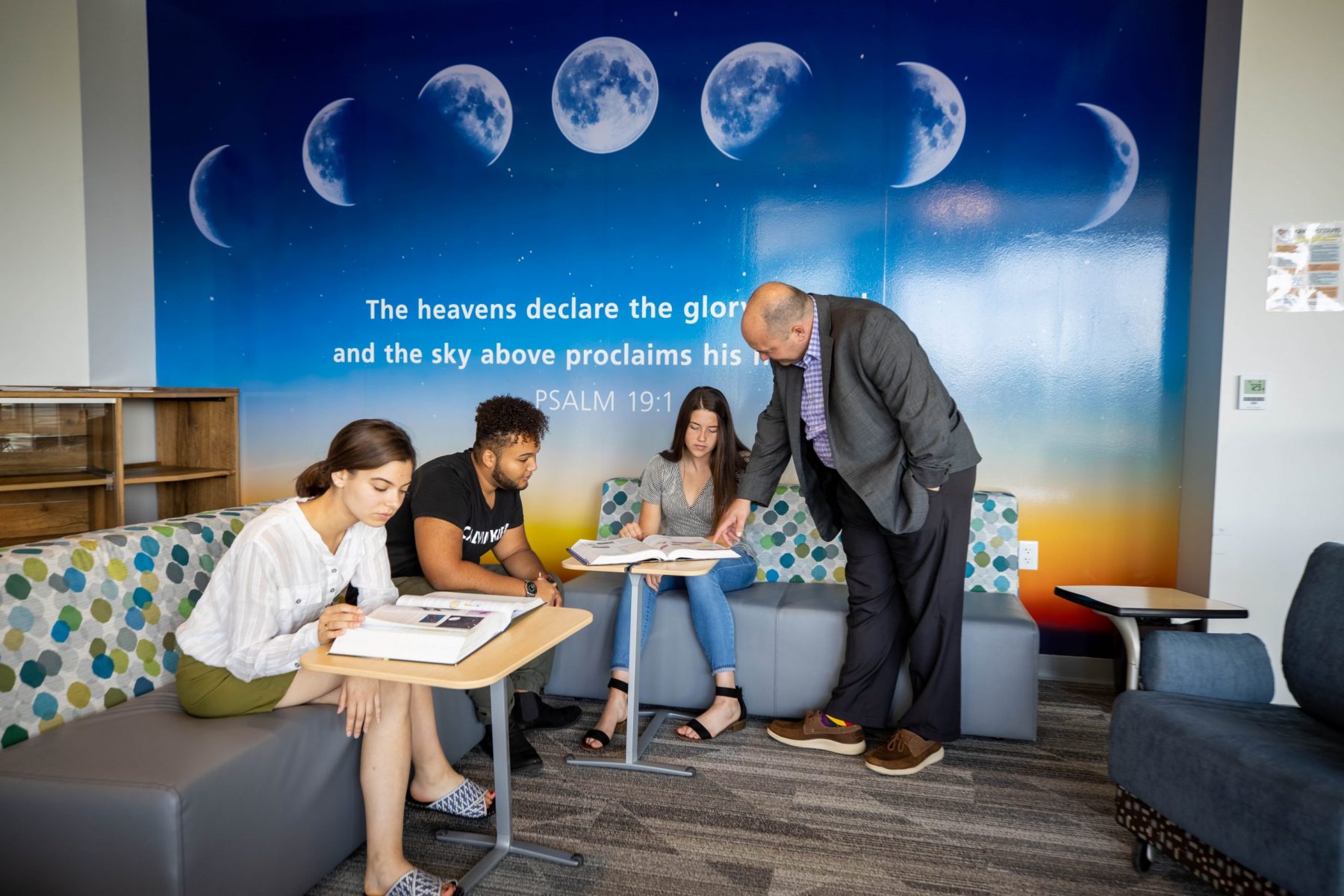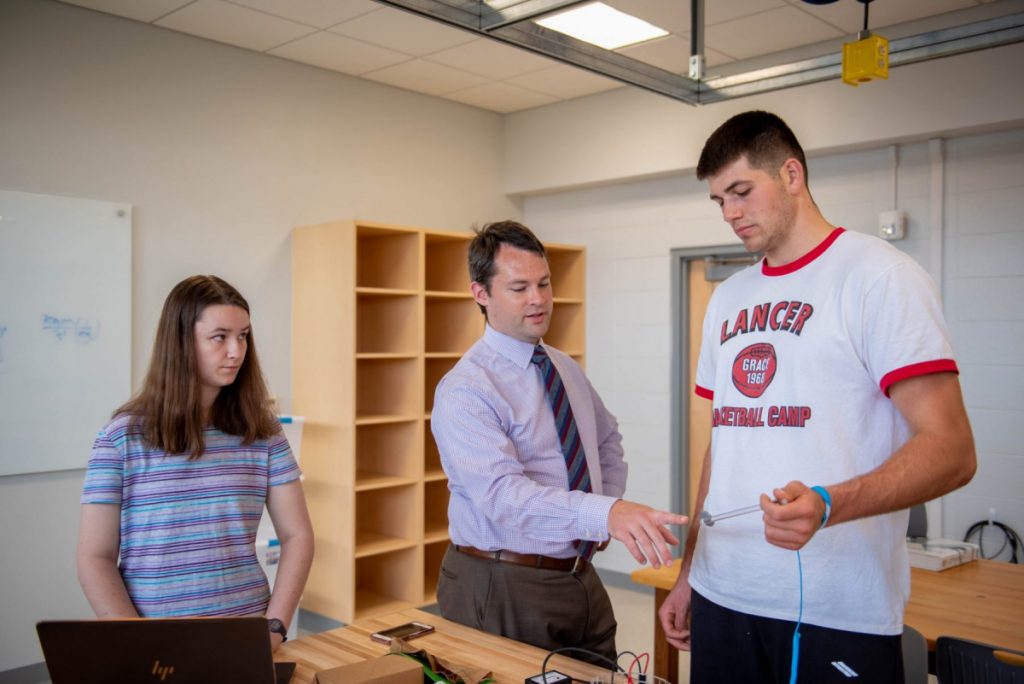For those students who are science majors, how will their course of study continue to build on the principles of this class?
Dr. Scott: I hope that science majors who take this course will be prepared to think critically about the worldviews they encounter in science labs and academia. For example, when a popular TV personality who stars in a science/engineering show says, “There is no such thing as a fact that cannot be independently corroborated” or when a prominent, best-selling scientist says that only science is “capable of describing and understanding reality” I want the students to recognize that those statements are logically self-refuting. However, on the positive side, I want the students to be able to articulate how the Christian worldview supports the existence of science.
Minnaar: I am a health science major, and it was incredibly helpful for me to take this course as it provided some background information and understanding on the relationship between faith and science. Oftentimes in science classes, you just learn about specific theories or study organ systems, but this class provided a map to navigate those topics, to allow me to see the bigger picture and to gain a more comprehensive understanding of thought processes, worldviews and how to journey along the path of science.
In your own words and experience, how do you refute the idea that faith and science cannot coexist?
Dr. Scott: One of my favorite examples in response to this question is that Christian Theism provides a reason to trust the inductive method. We make predictions in physics based on past observations. If I drop a pen, I expect it to fall because for years and years I have observed that things fall when released. However, there is no airtight, logical proof that the future will behave like the past. Any attempt at proving the validity of inductive reasoning becomes circular. But the Christian worldview found in the Bible leads us to trust that God made a world that exhibits regular patterns, patterns we can study with science. The secular scientist has no assurances that the world will operate in regular ways. In fact, when faced with that question, the response is usually to say that we expect the world to operate in regular ways because observations have shown that to be the case. But that is just invoking induction again!
Another aspect of the regular patterns that we observe in science is that they are comprehensible and language-like. Mathematics is used as the language of physics. However, languages are used for communication between minds. If the universe were a purposeless accident, then there would be no comprehensible patterns for us to understand. The existence of mathematics and laws of physics imply a mind who communicates. This idea is found in Genesis 1 and John 1, where the creation of the universe happens because “God said” and by means of “The Word.”
These thoughts just scratch the surface. There is a rich intellectual tradition in Christianity that stretches back to its beginning. The modern challenges to Christianity are not much different from the ancient ones.
Faith and science might seem to be opposing forces, but in the end, they actually support one another.
Want to know more about how our Christianity intersects with our scientific studies? Learn more about our School of Science and Engineering, or schedule a campus visit to meet the professors and ask them all of your questions about faith and science over a cup of coffee!






